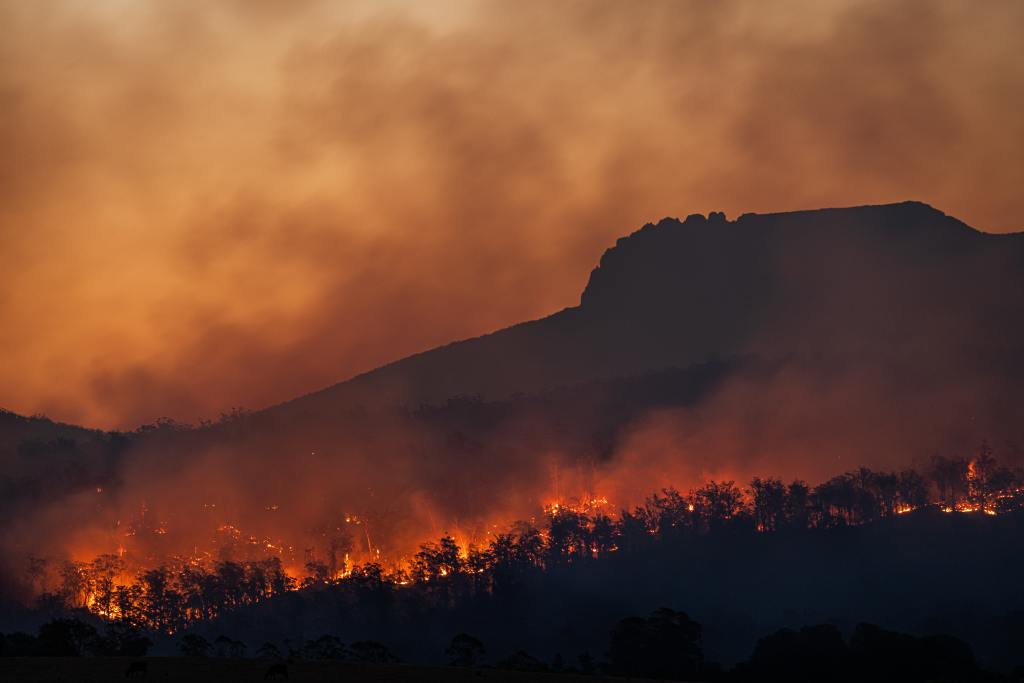
Intro by Joe Babaian | Blog by Amy Ma
This week we have the distinct pleasure of hosting Amy Ma as our #hcldr guest host. Amy is an enthusiastic participant in the #hcldr community and always brings powerful insights into the state of healthcare access and equity across diverse populations in Canada and North America. This week she is tackling the very real impact of climate change on the healthcare system and, more importantly, varied patient populations and families.
Amy is currently a patient / citizen advisor with Choosing Wisely Canada. She is actively involved in empowering the patient / citizen voice across Canada with organizations such as the Patient Advisory Network, L’Appui Montreal (caregiver advocacy), and Nourish (environmental nutrition). She has an interest in maternal mental health, accessibility, and health equity.
We are living at a time of overlapping planetary health emergencies. Environmental health and human health are linked. Our inability to mitigate climate change will negatively impact human health. The end of June 2021 saw Death Valley level of temperatures that stretched from northern California all the way to central British Columbia.
These were a stark wake-up call. If trends continue, it could undo 50 years of public health advances. Our current climate emergency impacts health in a number of ways:
- Infectious diseases with insect vectors (eg malaria, dengue fever) will shift in their geographic spread.
- Allergy seasons might be longer, more intense.
- Extreme heat will claim victims due to heat stroke; many medications are impacted and chronic health conditions are worsened by hot weather.
- Increasing food and water insecurity, including chemical contamination during floods, supply line disruptions, infrastructure failures, and more.
- Air pollution is a silent public health emergency. All organs are impacted, and carbon particles have been detected in the placenta.
- Environmental degradation of ecologically sensitive areas continue to disproportionately impact Indigenous peoples, with mental health consequences (loss of identity tied to the land).
- Extreme weather events will be more frequent and potent, leaving psychological and physical harm. Additionally, this puts infrastructure (eg hospital buildings) at risk of damage and inaccessibility.
True health system leadership comes from not just being stewards of hospitals and clinics but stewarding structural determinants of health—including the physical environment—which account for 80% of health outcomes.
No country is safe from this global climate emergency, which impacts every stage across one’s lifespan. The healthcare sector is the fifth largest emitter globally of greenhouse gases; for example, Canada ranks #3 for greenhouse gas emissions in healthcare. Health systems everywhere need to shed their siloed mentality about the ethics of doing no harm only within clinic walls, as activities carried out in the name of healthcare sometimes generates the very harm that cause people to get sick in the first place, from an environmental standpoint.
Whether it is anesthesia gases or people from outlying areas commuting large distances to receive medical care, healthcare is far from benign in terms of its carbon footprint. Desflurane (anesthetic) has 2,000 times the potency of carbon dioxide, yet it is often exempt from global discussions on greenhouse gases due to its medical use.
From surgery follow-up to telehealth consults, virtual medicine has saved between 0.7 kg to 372 kg of CO2 per visit. When costs for fuel, lost time at work, accommodations, and family-care charges are factored in, the patient and families save money too!
The challenge is two-fold: how to reduce carbon footprint as quickly as possible, and how to adapt to the reality of new extreme climate conditions. The UK’s NHS has taken a bold stance with their goal to become the world’s first ‘net zero’ health system.
The Lancet recognizes climate change as the single biggest threat to global health, and publishes an annual report including statistics on premature deaths due to excessive heat and air pollution, as well as projections of areas sensitive to rising sea levels.
Innovation has never been more compelling or necessary, as we face the greatest healthcare challenge of our generation.
Join the #hcldr weekly tweetchat on Tuesday July 20th at 8:30pm Eastern where we will discuss how to embed healthcare’s response to the climate emergency.
We’ll be discussing the following topics with the #hcldr community:
1. What incentives would be needed to convince a hospital or health system to commit to significantly reduce their carbon impact?
2. Where is a good place to start reducing carbon impact? Renewable energy to fuel the commute of workers? Energy efficient buildings? Plant-based diets in the cafeteria and composting? Other areas of priority?
3. What new kinds of business models would we need to finance decarbonizing healthcare’s footprint? How can we demonstrate the ROI in terms of money and intangibles?
4. As with any public health crisis, some groups are disproportionately affected by extreme weather and other climate emergencies. Including disabled persons, seniors, and indigenous populations. How do we ensure the most vulnerable are prioritized?
REFERENCES
NHS Goal of Net Zero health system by 2040 https://www.england.nhs.uk/greenernhs/wp-content/uploads/sites/51/2020/10/delivering-a-net-zero-national-health-service.pdf
Pharmaceuticals make up 19% of Australian and 22% of UK healthcare sector carbon footprint https://www.thelancet.com/journals/lanplh/article/PIIS2542-5196(17)30180-8/fulltext
Anaesthetic gases https://www.thelancet.com/pdfs/journals/lanplh/PIIS2542-5196(17)30040-2.pdf
Carbon footprint of surgery follow up (in person versus outreach clinic for those living in Maritimes) https://link.springer.com/article/10.1186/s40463-021-00510-4
Overview of heat dome and related events https://www.theglobeandmail.com/canada/article-western-canadas-deadly-heat-wave-is-driven-by-climate-change-will-it/
Death toll in British Columbia 3X higher than previous year (719 deaths during week of deadly heat wave) https://www.cbc.ca/news/canada/british-columbia/heat-wave-719-deaths-1.6088793
https://greenhealthcare.ca/climate-change/
Canadian public health costs of climate change https://www.cbc.ca/news/politics/climate-change-lytton-heat-wave-wildfires-1.6088767
https://climatechoices.ca/reports/the-health-costs-of-climate-change/
Cities cover only 1% of the world’s surface, but they are responsible for over 75% of the world’s carbon emissions. At the same time, they are also the main victims in the unfolding climate emergency. https://www.kent.ac.uk/news/environment/29260/canadanorth-west-usa-heatwave-highlights-impact-that-cities-have-on-climate-crisis
https://nymag.com/intelligencer/2021/07/how-to-live-in-a-climate-permanent-emergency.html
Retrofitting housing to be energy efficient generates energy savings and reduced greenhouse gas emissions are two to five times greater than the program cost https://canadiandimension.com/articles/view/after-bcs-historic-heatwave-canada-should-double-down-on-building-retrofits
The Lancet Pledge on Planetary Health https://www.thelancet.com/journals/lancet/article/PIIS0140-6736(20)32039-0/fulltext
Lancet Annual countdown on health and climate change https://www.thelancet.com/infographics/countdown2020
Healthcare organizations that are taking action:
Canadian Association of Nurses for the Environment http://www.cnhe-iise.ca/
Canadian Association of Physicians for the Environment https://cape.ca/
Photo Credit: Matt Palmer on Unsplash
